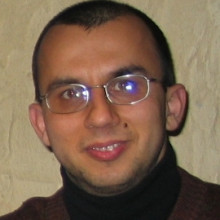HellasQCI project aims to deploy advanced National QCI systems and networks. Its architecture comprises of three metropolitan test- sites located at major cities of Greece namely: ΗellasQCI-Central(Athens), HellasQCI-North(Thessaloniki) and HellasQCI-South (Heraklion-Crete). Each test-site is divided into Governmental and Industrial testbeds, which allow the project to investigate the field- deployment of QKD technologies in a plethora of realistic scenarios and use cases addressing National Security, Public Health, Critical Infrastructure and ICT sector. An additional Educational testbed will allow the development of new quantum technologies, provide a sandpit for SME innovation, and offer Greece a futureproof extension towards Quantum Internet. It will also serve as a comprehensive training environment for technical, research staff and end users. For inter-test-site links and international connection with other EuroQCI members, HellasQCI will exploit three Greek observatories, which constitute a national asset and have been selected by ESA to be upgraded as Optical Ground Stations with QKD capabilities. The aim of HellasQCI is also to create a community from all interested national stakeholders, gather expertise and share knowhow on the application of quantum technologies. The HellasQCI consortium involves key research institutes and universities of Greece, which with unique expertise that are able to address the needs for an operational HellasQCI infrastructure. Governmental authorities including the Ministry of Digital Governance, the Hellenic Police, the Army and the National Intelligence Agency together with industrial partners, and SMEs can ensure the sustainability of HellasQCI. HellasQCI plans to cooperate with other EU Member States in order to boost Europe's scientific and technological capabilities in cybersecurity and quantum technologies, and to this end, it has already made partnerships with AT, LU, IE, ML, BG, PL, CY.
Position Description
O/H υποψήφιος αναμένεται να δουλέψει σε ορισμένα θέματα κβαντικής οπτικής και κβαντικής πληροφορίας, όπως είναι η δημιουργία και ο έλεγχος συστημάτων αλληλεπιδρώντων ατόμων, τα οποία προορίζονται ως κβαντικές μνήμες, καθώς και η σύμφωνη μεταφορά κβαντικών καταστάσεων από άτομα σε φωτόνια, και αντιστρόφως.
Για το πλήρες κείμενο της πρόσκλησης ακολουθήστε τον σύνδεσμο 'Related Documents'
Related Project
PACE-IN -Required Qualifications
- Πτυχίο Φυσικών Επιστημών (π.χ. Φυσικής, Οπτικής ή Ηλεκτρολόγων Μηχανικών κ.α.)
- Μεταπτυχιακό (MSc) σε σχετικό πεδίο
- Άριστη γνώση της Αγγλικής γλώσσας
Desirable Qualifications
- Καλό θεωρητικό υπόβαθρο σε θέματα κβαντικής θεωρίας
- Γνώσεις Η/Υ και προγραμματισμού
Application Procedure
Στο φάκελο υποβολής της πρότασης κάθε ενδιαφερόμενου θα πρέπει να εμπεριέχονται τα ακόλουθα:
- Αίτηση (Form Greek στην αριστερή στήλη) με αναφορά όνομα του προγράμματος και στον κωδικό της θέσης
- Αναλυτικό Βιογραφικό Σημείωμα
- Ευκρινή φωτοαντίγραφα τίτλων σπουδών
- Πρόσφατη βεβαίωση σπουδών υποψήφιου διδάκτορα
ΥΠΟΒΟΛΗ ΠΡΟΤΑΣΕΩΝ
Οι ενδιαφερόμενοι καλούνται να υποβάλουν τις αιτήσεις τους και όλα τα απαραίτητα δικαιολογητικά, ηλεκτρονικά στη διεύθυνση hr@iesl.forth.gr με κοινοποίηση (cc): στον Δρ D. Petrosyan (dap@iesl.forth.gr) . Οι αιτήσεις θα πρέπει να αποσταλούν με την ένδειξη: «Αίτηση στο πλαίσιο του προγράμματος PACE-IN και της πρόσκλησης εκδήλωσης ενδιαφέροντος με Α.Π. … και κωδικό θέσης … » (όπως αυτός αναφέρεται στον Πίνακα του Παραρτήματος).
Appointment Duration
10 μήνεςFunding

Position Description
Ο/Η υποψήφιος/α θα συμβάλει στην ανάπτυξη προηγμένων τεχνικών φασματοσκοπίας λέιζερ (κυρίως φασματοσκοπίας πλάσματος λέιζερ) και στο σχεδιασμό κατάλληλης οργανολογίας με στόχο την εφαρμογή τους στην αξιολόγηση της λειτουργικής κατάστασης πολυμερικών μονωτήρων χρησιμοποιούμενων σε δίκτυα μεταφοράς ηλεκτρικής ενέργειας υψηλής τάσης.
Για το πλήρες κείμενο της πρόσκλησης ακολουθήστε τον σύνδεσμο 'Related Documents'
Required Qualifications
- Μεταπτυχιακό Δίπλωμα Ειδίκευσης (MSc) από ΑΕΙ ή ΑΤΕΙ σε Μηχανική ή Φυσικές Επιστήμες
- Γνώσεις και εμπειρία στο σχεδιασμό και υλοποίηση διατάξεων λέιζερ ή/και οπτικής ή/και αναλυτικών συστημάτων καθώς και στην ανάπτυξη εξειδικευμένου λογισμικού για τον έλεγχο αυτών και την καταγραφή και επεξεργασία δεδομένων
- Εμπειρία σε προγραμματισμό σε περιβάλλον Labview
Desirable Qualifications
- Ειδίκευση σε Μηχανική συστημάτων, αυτοματισμού και ρομποτικής
- Προηγούμενη εμπειρία σε πειραματική οπτική
- Δημοσιεύσεις σε έγκριτα επιστημονικά περιοδικά
Application Procedure
ΑΠΑΡΑΙΤΗΤΑ ΔΙΚΑΙΟΛΟΓΗΤΙΚΑ
Στο φάκελο υποβολής της πρότασης θα πρέπει να εμπεριέχονται τα ακόλουθα:
- Αίτηση (Form Greek στην αριστερή στήλη) με αναφορά στον κωδικό της θέσης και στο όνομα του προγράμματος
- Αναλυτικό Βιογραφικό Σημείωμα
- Ευκρινή φωτοαντίγραφα τίτλων σπουδών
ΥΠΟΒΟΛΗ ΠΡΟΤΑΣΕΩΝ
Οι ενδιαφερόμενοι καλούνται να υποβάλουν τις αιτήσεις τους και όλα τα απαραίτητα δικαιολογητικά, ηλεκτρονικά στη διεύθυνση hr@iesl.forth.gr με κοινοποίηση (cc): στον καθηγ. Δ. Άγγλο (anglos@iesl.forth.gr). Οι αιτήσεις θα πρέπει να αποσταλούν με την ένδειξη: «Αίτηση στο πλαίσιο του προγράμματος PoweR-LIBS, της πρόσκλησης εκδήλωσης ενδιαφέροντος με Α.Π. … και κωδικό θέσης … » (όπως αυτός αναφέρεται στον Πίνακα του Παραρτήματος).
Appointment Duration
10 μήνεςPosition Description
Ο/Η υποψήφιος/α αναμένεται να έχει ενεργό συμμετοχή στην ανάπτυξη, εξέλιξη και εφαρμογή μεθοδολογιών και πρωτοκόλλων με έμφαση σε τεχνικές φθορισμού για τη μελέτη και χαρακτηρισμό υλικών σε ζωγραφικά έργα τέχνης σύμφωνα με τα προβλεπόμενα στο τεχνικό παράρτημα του έργου (https://www.iesl.forth.gr/en/project/proteas)
Για το πλήρες κείμενο της πρόσκλησης ακολουθήστε τον σύνδεσμο 'Related Documents'
Related Project
PROTEAS -Required Qualifications
- Διδακτορικό στις φυσικές επιστήμες ή την μηχανική (Φυσική, Χημεία, Επιστήμη Υλικών ή συναφή πεδία)
- Υψηλού επιπέδου γνώση και εμπειρία στην εφαρμογή φασματοσκοπικών τεχνικών (Φασματοσκοπία Απορρόφησης, Φθορισμού κ.α.) για την ανάλυση και το χαρακτηρισμό υλικών
- Αποδεδειγμένη εμπειρία στην εφαρμογή αναλυτικών μεθοδολογιών και πρωτοκόλλων για τη μελέτη υλικών σε αντικείμενα πολιτιστικής κληρονομιάς (αρχαιολογικά, ιστορικά ευρήματα, μνημεία, έργα τέχνης)
Desirable Qualifications
- Ερευνητικό/ επιστημονικό έργο μετά την απόκτηση του διδακτορικού (επιστημονικές δημοσιεύσεις σε έγκριτα περιοδικά και παρουσιάσεις σε συνέδρια με αντικείμενο σχετικό με το έργο)
- Καλή γνώση των υλικών που απαντούν σε αρχαιολογικά/ιστορικά αντικείμενα και έργα τέχνης
- Εμπειρία στην ανάπτυξη εργαστηριακών πειραματικών διατάξεων και οργανολογίας
Application Procedure
Στο φάκελο υποβολής της πρότασης θα πρέπει να εμπεριέχονται τα ακόλουθα:
- Αίτηση (form Greek στην αριστερή στήλη) με αναφορά στον κωδικό της θέσης και στο όνομα του προγράμματος
- Αναλυτικό Βιογραφικό Σημείωμα
- Ευκρινή φωτοαντίγραφα τίτλων σπουδών
ΥΠΟΒΟΛΗ ΠΡΟΤΑΣΕΩΝ
Οι ενδιαφερόμενοι καλούνται να υποβάλουν τις αιτήσεις τους και όλα τα απαραίτητα δικαιολογητικά, ηλεκτρονικά στη διεύθυνση hr@iesl.forth.gr με κοινοποίηση (cc): στον Καθηγ. Δ. Άγγλο (anglos@iesl.forth.gr). Οι αιτήσεις θα πρέπει να αποσταλούν με την ένδειξη: «Αίτηση στο πλαίσιο του προγράμματος ΠΡΩΤΕΑΣ, της πρόσκλησης εκδήλωσης ενδιαφέροντος με Α.Π. … και κωδικό θέσης … » (όπως αυτός αναφέρεται στον Πίνακα του Παραρτήματος).
Appointment Duration
5 μήνεςFunding




